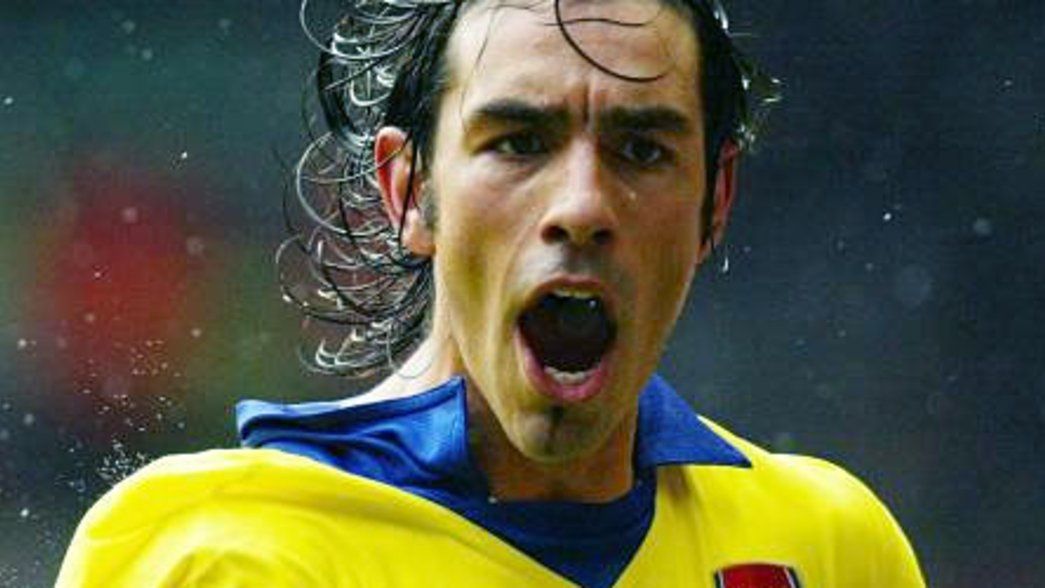On the day that David Rocastle died (March 31, 2001) Arsenal played bitter rivals Tottenham Hotspur at Highbury. Donning 'Rocky's' No 7 shirt that day was a Frenchman who had flattered to deceive in his opening few months as a Gunner. By full-time, though, and with the old enemy once again disposed of, the fans rejoiced in the ‘arrival’ of Robert Pires. The former Metz man showed guts, passion and creativity worthy of Rocastle, duly breaking the deadlock midway through the second half. He never looked back.
The fans had been hurt by Marc Overmars’ departure the previous summer but, thanks to another shrewd bit of transfer dealing from Arsène Wenger, the Dutchman's absence was rarely felt. Pires was a revelation, boasting a playmaker’s vision and a striker’s instinct in equal measure. His unusual running style was deceptive as Pires' fleet-of-foot was vital in the Arsenal machine of the early 2000s.
Pires arrived with some pedigree - he had been part of the all-conquering French team of 1998 and 2000 - but, by his own admission, he struggled early on. Fears that he would falter under the physical demands of the Premier League seemed merited. But familiarity brought about a potency in Pires, and the Frenchman began to thrive.
In his second season Robert was a fearsome proposition for defences across Europe. A sublime lob over Peter Schmeichel at Villa Park stands out, but there were other special efforts against Blackburn and Tottenham, too. However his campaign was to end prematurely when Arsenal hosted Newcastle in an FA Cup Sixth-Round replay in March. By now Pires was rampant, scoring the first and providing the second in a 3-0 win, before suffering serious cruciate knee ligament damage in front of the Clock End. It would keep him out until November.
His season had shuddered to a halt but Pires had done enough to scoop the Football Writers' Footballer of the Year award for his role in Arsenal’s Double triumph. On the final day of the campaign, Pires’ team-mates bowed down in front of him as he lifted the Premier League trophy. It summed up the regard in which Pires was held. That feeling was echoed in France. "It's Roberto, what can I say... we miss him." explained right-back, Lilian Thuram on his countryman’s absence from that summer’s World Cup.
After feeling his way back to fitness, Pires plundered 14 goals in 26 Premier League appearances in 2002/03, hitting a hat-trick against Southampton in the penultimate game of the season and following it with the decisive strike when Arsenal defeated the same outfit in the FA Cup Final in Cardiff.
Then came, arguably, Pires’ finest campaign. Arsenal were making history, sweeping all before them on the domestic stage thanks in no small part to left-sided triumvirate of Pires, Ashley Cole and Thierry Henry. They were unplayable at times and widely regarded as one of the continent's finest combinations. The Gallic pair registered a staggering 57 goals between them in all competitions.
His knack of scoring continued even as Pires grew older. In 2004/05 he finished third in the Premier League goalscoring charts, behind Henry and Crystal Palace’s Andrew Johnson, with 14. He was evolving, too. Robert now had a stern outer shell and proved his worth in the grittier aspects of the game. Nothing bears this out more than his tackle on Patrick Vieira in a Champions League tie against Juventus in 2006. Crunching into the former Gunners captain, Pires stole possession and so began a move that led to the opening goal for Cesc Fabregas.
At the end of that season Pires left North London and headed to Spain. The mercurial Frenchman did not deserve his departure 12 minutes into the Champions League Final, his final game, following Jens Lehmann’s red card. It wasn’t right, but needs must. Robert had served the Gunners fantastically and his contribution to one of the finest eras of Arsenal Football Club will never be forgotten.











